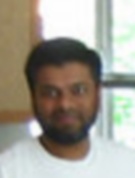by Asim Jalis
Here are some thoughts I had this morning that I wanted to write
down before I forgot:
There are two kinds of passion. Passion related to the process,
and passion related to the end.
There are other ways to describe this. We could call the first
one, something with an immediate pay-off, and the second one,
something with a long-term payoff.
Again there might be other ways of slicing passion, but I am
interested in exploring this particular slicing right now.
Examples: Let's say I want to end world hunger. This is an
end-inspired passion. To do this I will have to write letters,
cook food, work in a soup kitchen, fill out forms to create a
non-profit, do minor book-keeping, file tax returns, and many
other details necessary to execute towards the goal. I might not
necessarily enjoy these activities, but I will engage in them
because this would be only way I see to drive towards my desired
end.
Now, let's look at an example of a process-driven passion. Let's
say I really like to cook. I cook every day, for myself, for my
friends, and for anyone else who shows an interest. Over time I
create a restaurant, I start a TV show, I write a book, and
become a big cooking celebrity. Even though the cooking was a
means to many of the things I achieved, my passion was not for
those things, but rather for process. I continue to cook even
when I can hire other people to do it for me, because hiring
someone else would be absurd.
This is all familiar ground. We have talked about this before.
Now for the bold hypothesis. It is not possible to have a passion
that is both process-driven and end-driven. It is not possible
for the means and the end to be in harmony.
Let's consider programming for example. If I have a
process-driven passion for programming would mean that I really
enjoy the process of programming. I enjoy creating beautiful
code, and refactoring it to make it perfect.
If I have a goal-driven or end-driven passion for programming,
that means that I program because I want to make a lot of money
selling the program, or because I want establish myself as a
creative and endearingly eccentric developer of the next big
killer app.
If I program in the goal-driven mode, and I am inspired by the
vision of making money, I have to be in a hurry. I don't have
time to write beautiful code. I crank things out as quickly as I
can and then try to ship whatever I can slap together to make the
release. I will also program whatever the market wants. If I see
a market for GUI applications, I will write GUI applications. If
web applications are big this year, I will create a website.
On the other hand if I am programming in the process-driven mode,
I can easily spend hours chiselling a piece of code to
perfection. Each time I look at the code I will find some
duplication, or some other kind of symmetry, and I will eliminate
it.
(Well-factored programs have low symmetry. A high symmetry
suggests that either the programming language, or the
programmers, are incapable of removing symmetry.)
It is easy to see how this process-enjoying approach will make it
harder to achieve specific goals.
Now let's revisit our previous insights about goals and process.
We know that goals are an illusion. Actions have consequences
that ripple out in many different directions. The idea that an
action will lead to the achievement of a goal, i.e. that we can
arrange the universe like a row of neatly arranged dominos, and
can expect a tap on the first domino to end in the toppling of
the last, this idea is a mental illusion we use to give meaning
to our lives. (Ends provide meaning.)
As we act, we learn more about the universe, and as we learn more
we revise our goals. The goal is a mirage that we are always
approaching and that turns out to be something other than what we
imagined when we get there.
While we control our actions, we have little control over the
fruits of our actions, except in extremely structured
environments, or on extremely small scales, and in spaces where
we understand the rules. Unfortunately, most domains are not like
this. Even when they appear to be like this, they are not.
So when goals are so illusory and such a self-deception, why do
we all have them? And why is it that many people who succeed in
different endeavors claim to have used goal-setting to get there?
The reason is that without goals our lives become chaotic. Our
actions do not leverage each other. They also do not leverage our
actions from the past. Each action cancels the effects of the
others. The actions interfere with each other destructively
rather than constructively.
Even after the realization that goals are an illusion, it is
important to have goals, because they allow for leverage to occur
between actions. This leverage allows an engagement with the
universe which leads to new understanding.
It's much easier to find passion in the process when we are
engaged in a meaningless goal. And so perhaps the way to resolve
this tension between the short-term enjoyment and long-term
payoff, is to devise weak or meaningless goals, and then to find
satisfaction in working to achieve them.


